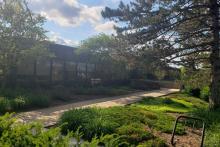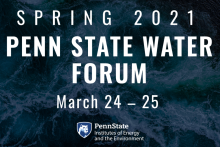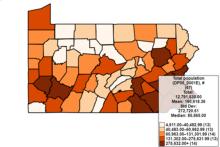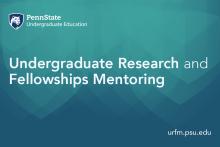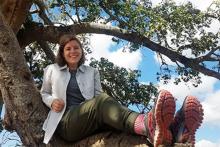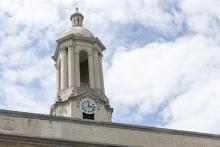In her first year as executive director of EMS Benefiting THON, the student group in the College of Earth and Mineral Sciences that helps raise funds for families grappling with pediatric cancer, Penn State student Kayla McCauley had a few things to be worried about.
For Joel Burcat, retired environmental lawyer turned novelist, the first step on his career path was a physical geography course.
The Institutes of Energy and the Environment (IEE) created a new research theme: Urban Systems. The theme will address the essential and urgent needs for sustainable, healthy and affordable solutions for urban areas.
In 2021, Penn State’s Sustainability Institute (SI) and the Pennsylvania GreenGov Council are co-hosting a monthly webinar series to educate employees in state agencies and municipal governments about how they can incorporate sustainability into their work.
The Penn State Water Council has announced the agenda for the 2021 Water Forum, which will take place virtually on the afternoons of Wednesday, March 24, and Thursday, March 25.
Recent Master of Geographic Information Systems graduate Nate Geyer has always been interested in epidemiology and geography. As a research support assistant in the Department of Public Health Sciences in the College of Medicine, he was able to put those interests together by creating a new version of the LionVu cancer mapping tool.
16 students will represent Penn State during the final round of selections for the Fulbright U.S. Student Program’s 2021-22 award year, including Ruchi Patel, human dimensions of natural resources and the environment, geography.
Penn State's Office of the Vice Provost for Faculty Affairs has named 13 distinguished professors for 2021.
State College native Hope Bodenschatz is looking forward to graduating from Penn State this spring with three bachelor’s degrees and one master’s degree, then starting a position as a research assistant for the director of the New England Public Policy Center at the Federal Reserve Bank of Boston.





